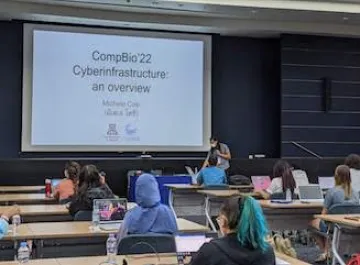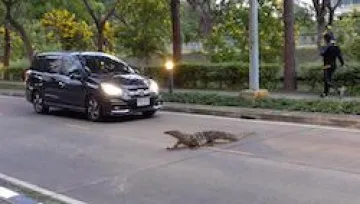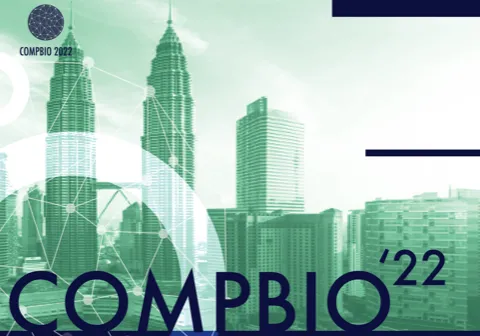Learning Cyberinfrastructure and Cross-cultural Lessons at CompBio Asia 2022
From CyVerse to favorite Thai's street-snacks, CompBio Asia 2022 offered participants a taste of cross-cultural learning.


Learning foundational skills in computational biology may not sound glamorous or exciting, but what if you were learning along with other international graduate students in Bangkok, Thailand with travel expenses and cross-cultural experiences included? The CompBio Asia 2022 Workshop offered just that, covering domain topics such as sequencing analyses, molecular modeling, and molecular dynamics applied to the students’ own real-world research problems and supported by computational resources such as CyVerse, Jetstream2, XSEDE, and OpenStack. Workshop instructors hailed from Europe, Asia, and the U.S., and included CyVerse’s Michele Cosi and University of Arizona’s Travis Wheeler, who participated through an NSF- and EU-funded collaboration with the University of Montana, University of Putra Malaysia, Perdana University (Malaysia), the National University of Singapore, Agency for Science, Technology, and Research of Singapore, and the National Supercomputing Center of Singapore.

Of more than 120 applicants, 44 graduate students representing Malaysia, Bangladesh, India, Pakistan, Turkey, Canada, Sri Lanka, UK, Brazil, Colombia, and the U.S. were selected to participate in the two-week workshop held in Bangkok, June 12-25. In addition to lectures and the cultural novelties of life in Thailand, like riding tuk-tuks, braking for a street-crossing monitor lizard, and street snacking on scorpions-on-a-stick, the workshop featured two excursions to see the cultural heritage of Thailand. Participants visited ruins of Ayutthaya, the old capital of Thailand and a UNESCO World Heritage site; in Bangkok, they toured the Grand Palace complex, which includes the current residence of the King of Thailand and the Temple of Dawn. “Between lectures and group activities, the CompBio Asia Workshop truly shined when the students interacted with each other,” said Dr. Wheeler. “This dynamic, despite the backdrop of the pandemic, gave people from different backgrounds a unique chance to help each other solve issues while learning material that would otherwise be difficult to learn on their own.”


